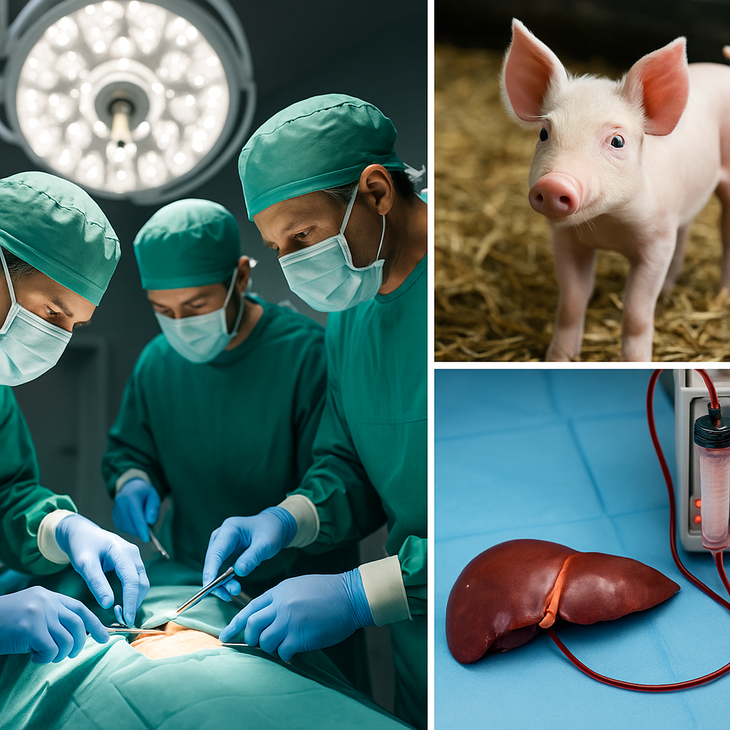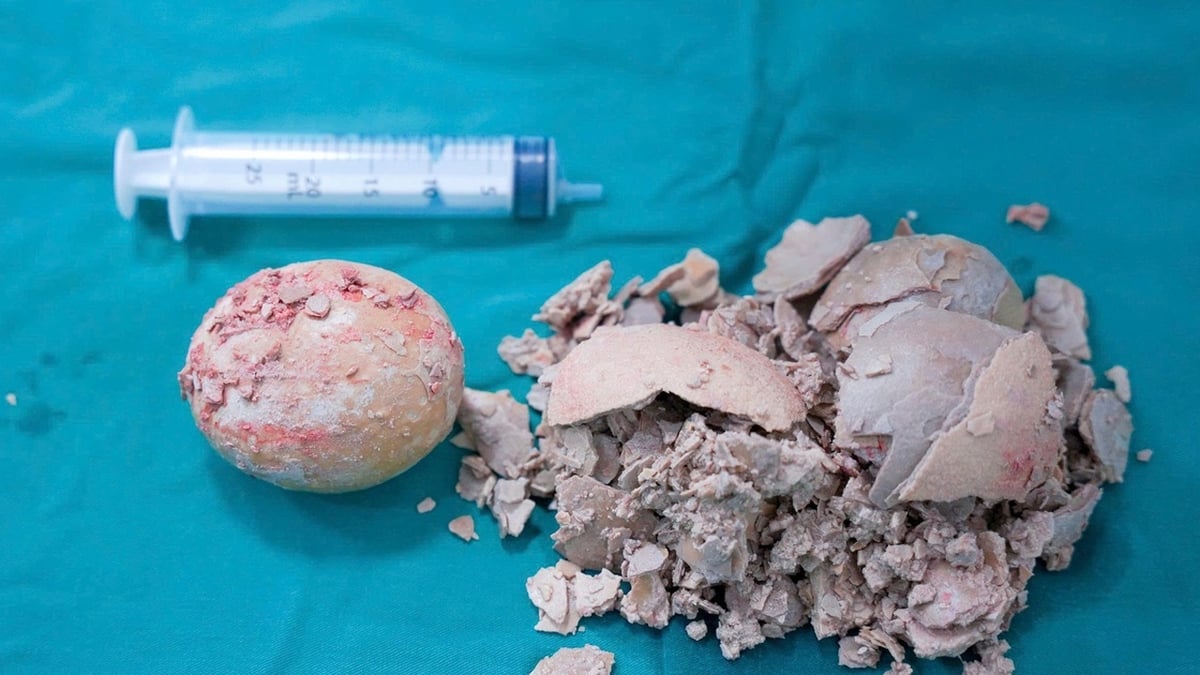The "extracorporeal liver filtration" method using pig liver can help patients survive the dangerous stage, waiting for the real liver to recover - Illustration: AI
According to Nature, the US Food and Drug Administration (FDA) has just approved the world's first clinical trial using genetically modified pig livers to temporarily filter blood for patients with acute liver failure, with the goal of helping human livers recover.
Gene-edited pig livers act as temporary biological bridges
The first four patients to be recruited for the phase one trial, which is expected to begin this year, will have acute-on-chronic liver failure (ACLF) with hepatic encephalopathy (HE), a condition in which toxins accumulate in the blood and cause severe neurological disorders.
For up to 72 hours, the patient’s blood will be pumped through the pig’s liver to clean out harmful substances. The patient will then be monitored for a year to assess effectiveness and safety.
The trial will be conducted by two biotechnology companies: eGenesis (USA), which specializes in editing animal genes to make them compatible with humans, and OrganOx (UK), a manufacturer of equipment for preserving and supporting livers outside the body.
Unlike conventional liver transplants, the pig livers in this study will not be transplanted into humans. Instead, the livers will be placed outside the patient’s body, connected to the circulatory system to filter toxins and waste that accumulate due to liver damage, much like a biological blood filter.
"The liver is the only organ that can regenerate. We wanted to know if a pig liver could temporarily do the job, would a human liver have enough time to recover?", shared Mike Curtis, CEO of eGenesis.
The pig livers used in the experiment have undergone complex genetic modifications to remove elements that can cause an immune response in humans. These livers have shown the ability to maintain blood-filtering function for 2–3 days when tested in human donors in the lab, according to Mike Curtis.
Opportunity to save the lives of patients who cannot receive liver transplants
Acute liver failure is a life-threatening condition with a mortality rate of up to 50%. Each year, approximately 35,000 people in the United States alone are hospitalized for sudden loss of liver function. However, many people are not eligible for a liver transplant, or a suitable liver cannot be found in time.
Professor Wayne Hawthorne, a liver transplant expert at the University of Sydney (Australia), said this was a breakthrough after decades of research on organ transplants from animals to humans. He said that pig livers act as a "biological bridge solution", helping to keep patients alive while waiting for their livers to recover naturally or wait for a suitable donor liver.
If this trial is successful, the number of patients could be expanded to 20, and move towards wider application for cases of critical liver failure that are not eligible for liver transplantation.
Along with livers, other organs such as pig kidneys are also undergoing clinical trials in the US on patients with end-stage renal failure. However, scientists still face many challenges: transplant rejection, the risk of infection from animals to humans, and the long-term effectiveness of xenotransplanted organs.
However, the FDA approval of this trial is opening up a new future for the field of organ transplantation, genetically modified pigs can become a "living organ bank" for thousands of patients who are waiting for organ transplants every year.
In parallel with pig liver trials, gene-edited pig kidneys are also being tested for transplant into living humans. If successful, this will pave the way for technologies that use animal organs as temporary or permanent biological devices, helping to overcome the global organ shortage crisis.
Read moreBack to Topic Page
Back to topic
MINH HAI
Source: https://tuoitre.vn/my-thu-nghiem-dung-gan-heo-chinh-sua-gen-tri-suy-gan-cap-tinh-o-nguoi-20250417145446855.htm




















































![[Maritime News] More than 80% of global container shipping capacity is in the hands of MSC and major shipping alliances](https://vphoto.vietnam.vn/thumb/402x226/vietnam/resource/IMAGE/2025/7/16/6b4d586c984b4cbf8c5680352b9eaeb0)













































Comment (0)